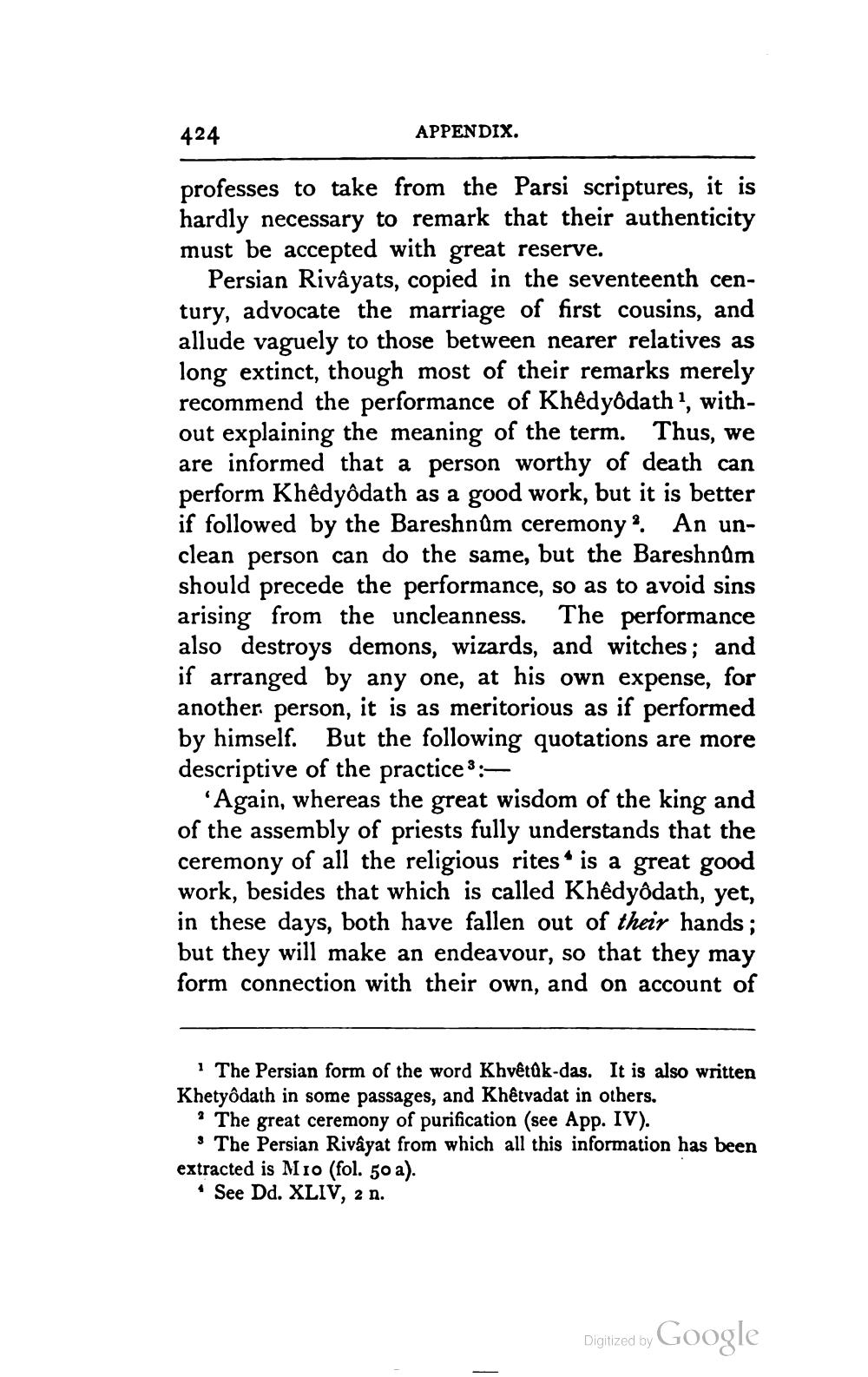________________
424
APPENDIX.
professes to take from the Parsi scriptures, it is hardly necessary to remark that their authenticity must be accepted with great reserve.
Persian Rivâyats, copied in the seventeenth century, advocate the marriage of first cousins, and allude vaguely to those between nearer relatives as long extinct, though most of their remarks merely recommend the performance of Khêdyôdath', without explaining the meaning of the term. Thus, we are informed that a person worthy of death can perform Khêdyôdath as a good work, but it is better if followed by the Bareshnum ceremony. An unclean person can do the same, but the Bareshnům should precede the performance, so as to avoid sins arising from the uncleanness. The performance also destroys demons, wizards, and witches; and if arranged by any one, at his own expense, for another person, it is as meritorious as if performed by himself. But the following quotations are more descriptive of the practices :
'Again, whereas the great wisdom of the king and of the assembly of priests fully understands that the ceremony of all the religious rites is a great good work, besides that which is called Khêdyôdath, yet, in these days, both have fallen out of their hands; but they will make an endeavour, so that they may form connection with their own, and on account of
1 The Persian form of the word Khvêtûk-das. It is also written Khetyôdath in some passages, and Khêtvadat in others.
? The great ceremony of purification (see App. IV).
3 The Persian Rivâyat from which all this information has been extracted is M10 (fol. 50 a).
• See Dd. XLIV, 2 n.
Digitized by Google




